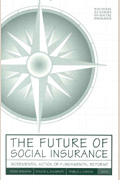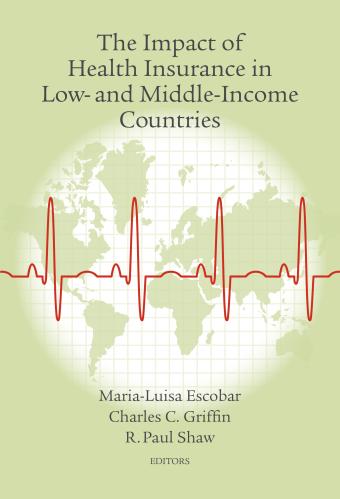What’s the latest thinking in fiscal and monetary policy? The Hutchins Roundup keeps you informed of the latest research, charts, and speeches. Want to receive the Hutchins Roundup as an email? Sign up here to get it in your inbox every Thursday.
Why some nonbank financial institutions used Fed’s TALF more
Institutional differences among nonbank financial institutions affected their participation in the Fed’s Term Asset-Backed Securities Loan Facility (TALF) during both the 2008 and 2020 crises, find Ralf Meisenzahl of the Chicago Fed and Karen Pence of the Federal Reserve Board. The facility offered loans to investors in certain asset-backed securities to support household and business lending. Using loan-level data, the authors find that the behavior of nonbank participants – and their willingness to support the program’s goals – differed based on institutional structures and incentives. They show that participants with more flexible investment parameters (e.g., hedge funds, insurance companies, and pension funds) participated early in the program. They find that when private market conditions later stabilized, more “opportunistic” investors seeking short-term gains – including TALF-only investment vehicles – were more likely to exit the program. Certain types of investors, such as hedge funds and real estate investment trusts, attempted to shift risk to the government by submitting riskier collateral once market conditions normalized and they became less dependent on TALF funding. The authors conclude that allowing a wide range of investors to participate can benefit programs with multiple objectives, but the consequences of programs targeting nonbanks can be difficult to predict.
Flood insurance requirements limit credit availability
Homeowners in flood zones are not legally required to buy federal flood insurance. However, homes in flood zones designated by the Federal Emergency Management Agency are required to obtain and maintain the insurance to be eligible for federal disaster relief and federal mortgage underwriting. Kristian S. Blickle and João A. C. Santos of the New York Fed find that, as a result, the likelihood of mortgage approval is smaller in flood zones and that these chances are even lower for low-income borrowers and borrowers with lower credit scores. Banks may suspect that low-income and low-credit borrowers are unable to afford the additional cost of flood insurance, they say. In addition, they find that banks that do not have a local branch or ties to the area are less likely to approve mortgages in flood zones, suggesting that non-local banks are unable or unwilling to monitor borrower adherence to flood insurance requirements. The authors conclude that mandatory insurance, although meant to share risk, limits credit access for low-income borrowers.
Offering employers insurance increases demand for workers with a criminal background
State and local policies increasingly restrict employers’ access to job applicants’ criminal records. However, these policies don’t address the underlying reasons why employers conduct criminal background checks. Zoe B. Cullen and Will S. Dobbie from Harvard and Mitchell Hoffman from the University of Toronto conduct a field experiment in which they ask nearly 1,000 U.S. businesses whether they would offer a job to workers with a criminal record given the availability and level of wage subsidies, crime and safety insurance, past performance reviews, and a more limited screening of criminal records. They find that 39% of businesses would be willing to hire workers with criminal records without additional incentives. This level of demand without incentives increases to about 45% for jobs that do not involve customer interactions and 51% for jobs that don’t involve high-value inventory. The share of businesses willing to hire such workers increases to 50% or higher when businesses are offered a modest level of crime and safety insurance, a single performance review, or screening of the most recent criminal records. The authors conclude that policymakers may affect demand for workers with criminal backgrounds by “directly addressing the underlying reasons that employers choose to conduct background checks, rather than simply prohibiting or delaying questions about job applicants’ arrest and conviction record during the hiring process.”
Chart of the Week: IMF revises inflation projections
Chart courtesy of the IMF
Quote of the week:
“The risk is rising that inflation expectations drift away from central bank inflation targets, prompting a more aggressive tightening response from policymakers. Furthermore, increases in food and fuel prices may also significantly increase the prospect of social unrest in poorer countries. Immediately after the invasion, financial conditions tightened for emerging markets and developing countries. So far, this repricing has been mostly orderly. Yet, several financial fragility risks remain, raising the prospect of a sharp tightening of global financial conditions as well as capital outflows,” says Pierre-Olivier Gourinchas, Economic Counsellor and Director of Research at the International Monetary Fund.
“On the fiscal side, policy space was already eroded in many countries by the pandemic. Withdrawal of extraordinary fiscal support was projected to continue. The surge in commodity prices and the increase in global interest rates will further reduce fiscal space, especially for oil- and food-importing emerging markets and developing economies. The war also increases the risk of a more permanent fragmentation of the world economy into geopolitical blocks with distinct technology standards, cross-border payment systems, and reserve currencies. Such a tectonic shift would cause long-run efficiency losses, increase volatility and represent a major challenge to the rules-based framework that has governed international and economic relations for the last 75 years.”
The Brookings Institution is financed through the support of a diverse array of foundations, corporations, governments, individuals, as well as an endowment. A list of donors can be found in our annual reports published online here. The findings, interpretations, and conclusions in this report are solely those of its author(s) and are not influenced by any donation.











Commentary
Hutchins Roundup: Financial institutions, flood insurance, and more
April 21, 2022